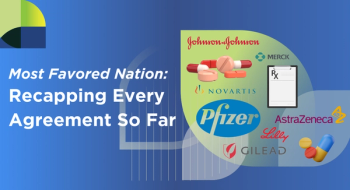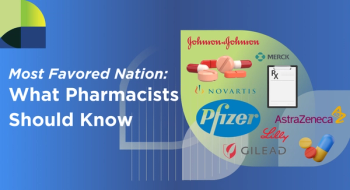
- July/August 2017
- Volume 8
- Issue 5
Agents of Chaos in Specialty Pharmacy
Shockwaves erupted through the business community recently when retail giant Amazon announced the purchase of Whole Foods Market for a reported $13.7 billion. The deal sent shares of Whole Foods up 28% shortly after it was announced, while competitors’ stocks dropped by as much as 11%, according to CNBC. The logic of the purchase is simple, as only 12% of US shoppers bought their groceries online last year, millennials represented the majority of this group, according to CNBC.
With the future growth potential of online grocery shopping, Amazon—with approximately 80 million subscribers to its Amazon Prime service, as estimated by Consumer Intelligence Research Partners—is poised to capitalize on this growing market. This news should be of particular interest to pharmacy stakeholders—specifically specialty pharmacy—with the sky-high revenue at stake in the pharma market. Amazon already has the proper infrastructure in place, with shipping and delivery techniques that can get products to the consumer within 24 hours.
Thus, concerns over prescriptions arriving late will be alleviated, giving consumers more confidence buying their medications from Amazon. With the potential chaos Amazon could create in the pharmacy market, Ron Lanton analyzes the implications of an Amazon-operated specialty pharmacy and its impact on the pharma landscape, on page 19. As Lanton notes, Amazon’s Alexa line of conversational user interfaces, synchronized with other smart devices, could effectively engage patients around the clock, collect clinical data, and drive adherence and refills with real-time interventions. Furthermore, with the potential for Amazon’s front-end engagement channel to dramatically cut call center costs, “the ability to compete for payer contracts and deliver more lucrative pharma services at a lower cost would be unprecedented,” Lanton writes.
Despite the looming shadow of the retail giant, the technological reach of Amazon should not, however, be viewed as a threat, but rather an opportunity to capitalize on. With the growing use of telemedicine and mobile health, specialty can leverage these technologies to improve patient care and lower costs, according to Lanton. With the potential for disruption, it has never been more important to stay ahead of the latest trends that will influence specialty pharmacy in the years ahead, as we do here in this print journal and on our daily news website, www.SpecialtyPharmacyTimes.com.
Follow us online, here in print, and in our e-newsletters (sign up at specialtypharmacytimes.com/link/1306) to ensure your pharmacy is ahead of the curve. 
Thank you for reading.
Mike Hennessy, Sr
Chairman & CEO
Articles in this issue
over 8 years ago
Do You Use Nurses in Your Specialty Pharmacy? You May Want Toover 8 years ago
Can Thermal Mass Change the Cold Supply Chain?over 8 years ago
Is Amazon Primed to Disrupt Specialty Pharmacy?over 8 years ago
Finally Getting Real: BiosimilarsNewsletter
Stay informed on drug updates, treatment guidelines, and pharmacy practice trends—subscribe to Pharmacy Times for weekly clinical insights.




























